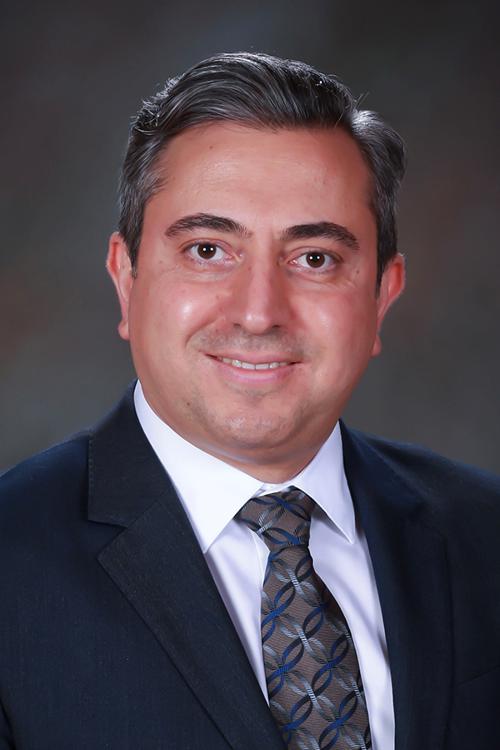The American Cancer Society estimates that 238,340 Americans will be diagnosed with lung cancer this year, including more than 7,000 people in Georgia alone. Like other forms of cancer, lung cancer is more easily treated when it’s diagnosed early. Could you benefit from lung cancer screening?
When you think about cancer screenings, the routine screenings probably come to mind. Those are tests that are recommended on a regular basis for nearly everyone, varying by age and sex.
Routine screenings include the tests you’re most familiar with—mammograms for the detection of breast cancer, colonoscopies and other tests for the detection of colorectal cancer, and skin checks for the detection of skin cancer.
In addition to those screenings, though, there are also other types of cancer screenings recommended based on a person’s lifestyle and other risk factors. Lung cancer screening is one of those tests.
Who’s at risk for lung cancer?
Any person can develop lung cancer, but certain people are at a higher risk. Smoking is the most significant risk factor, and it’s associated with nine out of 10 cases of lung cancer among men and eight out of 10 cases among women.
A personal history of smoking isn’t the only risk factor, though. Other risk factors include:
- Being exposed to air pollution
- Being exposed to asbestos, arsenic, chromium, beryllium, nickel, soot, or tar in the workplace
- Being exposed to radiation, including radiation therapy for breast cancer, radon in the home or workplace, or certain imaging tests
- Being exposed to secondhand smoke
- Having HIV
In many cases, lung cancer doesn’t cause any noticeable symptoms, and the condition is sometimes first detected during a chest X-ray to diagnose another illness. If symptoms are present, they can include chest discomfort, a cough that lingers or worsens over time, wheezing, hoarseness, a loss of appetite, weight loss with no known cause, difficulty swallowing, or fatigue.
What is lung cancer screening?
Lung cancer screening consists of a low-dose CT scan. During this test, you’ll lie on a table that slides in and out of a machine. This machine uses a specialized type of X-ray to capture multiple images of your chest, which are then combined to provide a detailed picture of the lungs.
The entire process may take around 30 minutes, but the actual scan usually takes only a minute or two.
A radiologist will review the CT scan and create a thorough report of its findings for your medical provider. If anything abnormal is spotted in the lungs or surrounding tissue, a follow up screening may be recommended after three months, six months, or a year, or a biopsy may be recommended if the spot is large or particularly suspicious.
Who needs lung cancer screening?
The U.S. Preventive Services Task Force (USPSTF) recommends yearly lung cancer screening using low-dose CT scans for those who currently smoke or who have a history of smoking. Specifically, annual screening is recommended for those who:
- Have a 20 pack-year or more smoking history AND
- Smoke now or have quit within the past 15 years AND
- Are between 50 and 80 years old
Wondering what a pack-year is? It means smoking an average of one pack of cigarettes per day for one year. For example, someone could have a 20 pack-year history by smoking one pack of cigarettes daily for 20 years or two packs of cigarettes daily for 10 years.
The USPSTF notes that lung cancer screening is not recommended for those who haven’t smoked in the last 15 years or never-smokers, who have never smoked at all, because “the possible harms of screening outweigh the possible benefit in this group.” Potential harms include exposure to low-dose radiation or false positives leading to additional testing.
With that said, though, there may be some instances where a CT scan of the lungs and chest is recommended by a medical provider based on a person’s specific needs. This type of test may be used to properly diagnose someone who has risk factors for lung cancer, like exposure to asbestos or arsenic at work, along with symptoms of a lung disease.
What if I’m embarrassed about having lung cancer screening?
There’s absolutely no reason to be embarrassed or ashamed about undergoing lung cancer screening!
While your risk factors are unique and distinct from others, we are all at risk of developing medical conditions of all kinds. Seeing your primary care provider regularly for checkups and getting age-appropriate screenings and vaccines is an important part of maintaining your health and wellness as you get older.
Taking care of your health is nothing to be ashamed of! And lung cancer screening can be lifesaving. While lung cancer is the most common cause of cancer death among American men and women, finding the cancer early makes it much more treatable.
In fact, if lung cancer is detected and treatment begins before it spreads, the five-year survival rate improves to 65%. When lung cancer is found in a later stage, often by accident rather than through screening, the five-year survival rate dips to under 10%.
Will lung cancer screening be covered by my insurance?
In most cases, the answer is yes! Lung cancer screening according to the USPSTF guidelines is covered by Medicare and most other insurance plans.
Like many other types of recommended screenings, including mammograms and colonoscopies, annual lung cancer screening is typically provided free of cost to those covered by insurance. It’s considered a preventive health service, which have been widely covered at no cost to patients since the inception of the Affordable Care Act.
Because individual plans vary in coverage, check the details of your plan prior to scheduling a screening. In many cases this information can be quickly gathered through a phone call to your insurance provider.
Learn more
Wondering whether you could benefit from a lung cancer screening? Get the details and find out how to schedule an appointment on our website.



